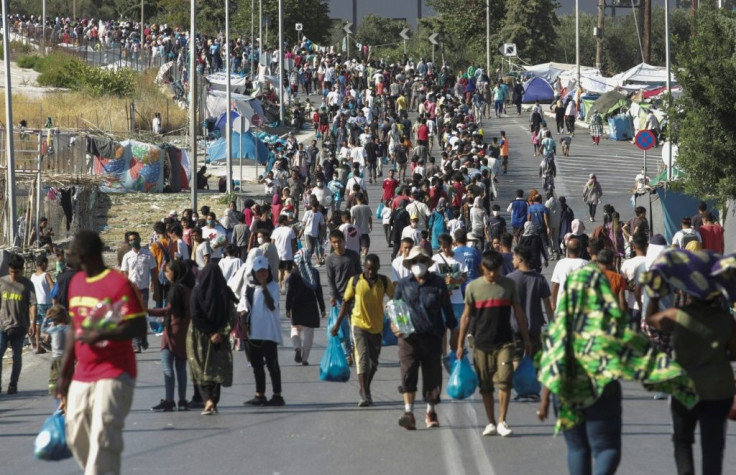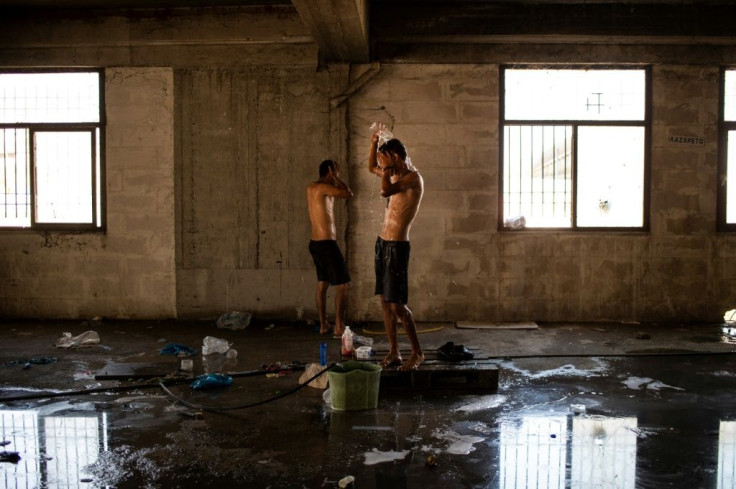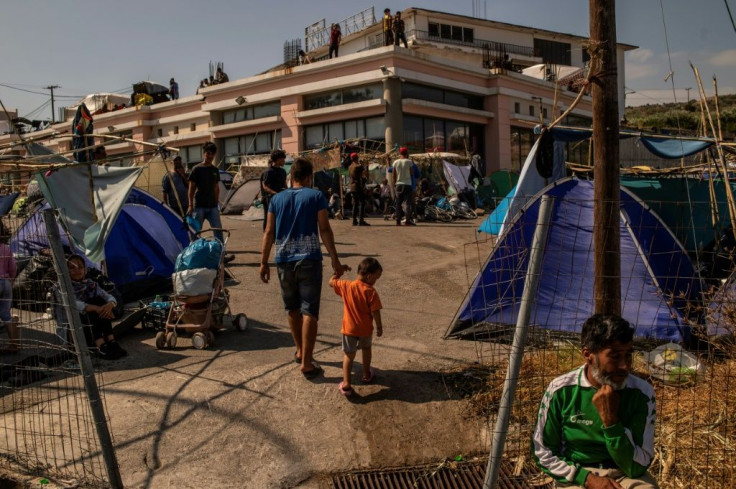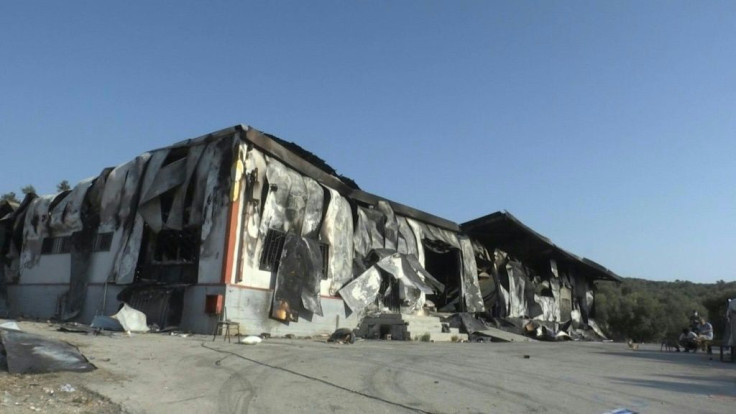Hundreds Of Migrants Housed In New Lesbos Camp After Fire
Roughly 800 of the thousands of asylum seekers who fled a fire that destroyed Europe's biggest migrant camp have been housed at a temporary site on the island of Lesbos, Greece's migration ministry said.
Among them, 21 have tested positive for coronavirus, the ministry said late Monday.

Thousands of people had been left wandering aimlessly since a blaze ripped through the overcrowded Moria camp on September 8.
The fire forced its 12,000 former occupants to sleep rough in abandoned buildings, on roadsides and even rooftops.

Officials have been hastily erecting a new camp of white tents near the eastern port-village of Panagiouda as exhaustion, hunger and fear set in among the migrants.
Many have refused to enter the new camp, fearing they would be unable to leave once inside.

Others are reluctantly making their way to the site in the searing heat.
But some 800 of them are now housed in the temporary centre, the ministry said.

"There's nothing in the camp, no shower, no mattresses," Malik, an Algerian migrant, told AFP by phone from inside the camp where he now lives with his wife and five children.
"There is only one meal per day, and they give us a carton with six bottles of water," said the French teacher.
Many migrants also fear the animosity of Lesbos residents.
There have been frequent incidents between the asylum seekers and locals, including those from the far-right, since last year.
Kostas Mountzouris, governor of the North Aegean region covering Lesbos and one of the most ardent opponents of the new camp, called on local businesses to protest on Tuesday and seek "the removal of migrants from the island".
"The camp was burnt by refugees and migrants who wanted to blackmail the government in order to be rapidly transferred from the island (to the continent)," government spokesman Stelios Petsas told reporters in Athens, giving no further details.
Officials had previously said the fire was started by migrants who faced isolation after testing positive for coronavirus.
© Copyright AFP 2024. All rights reserved.




















